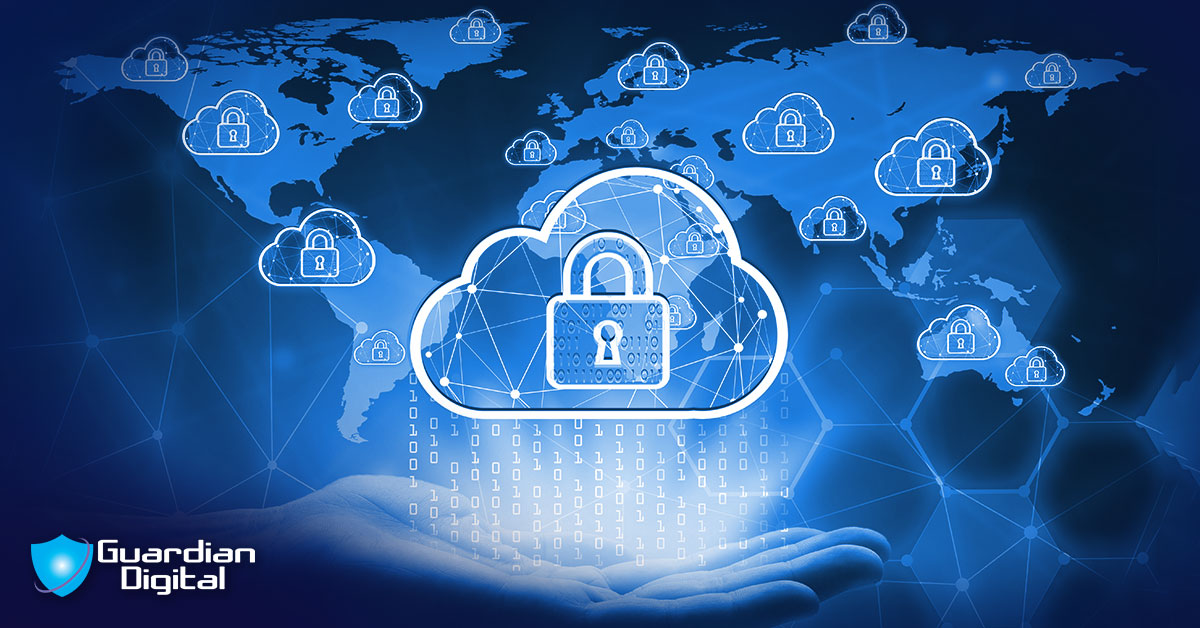Welcome to the World of Cloud Computing and GDPR Compliance!
Hey there, tech-savvy reader! In today’s fast-paced digital world, it’s not just about having the best products and services. Organizations need to boost productivity, drive innovation, protect customer privacy, and streamline operations using cutting-edge technology. And one of the most exciting technologies out there is the Cloud, also known as cloud computing.
While the Cloud has revolutionized business operations, it also poses challenges for organizations that must adhere to regulations like GDPR. GDPR mandates the encryption of customer data, a crucial aspect of maintaining customer trust.
In this blog post, we’ll delve into the basics of cloud computing, the importance of GDPR in data security, how encryption safeguards data in the Cloud, and the ins and outs of ensuring compliance with GDPR.
Exploring the Cloud and Its Popularity
 Cloud computing has become a game-changer in today’s digital landscape, allowing organizations to store and access data over the internet. It offers a range of services like databases, servers, virtual storage, and software, all hosted on virtual online platforms. Major cloud service providers like Amazon Web Services, Microsoft Azure, and Google Cloud Platform share responsibilities with end-user organizations, ensuring clear roles and responsibilities for both parties.
Cloud computing has become a game-changer in today’s digital landscape, allowing organizations to store and access data over the internet. It offers a range of services like databases, servers, virtual storage, and software, all hosted on virtual online platforms. Major cloud service providers like Amazon Web Services, Microsoft Azure, and Google Cloud Platform share responsibilities with end-user organizations, ensuring clear roles and responsibilities for both parties.
Why do companies flock to cloud computing? Scalability is a key factor, enabling organizations to adjust storage, computing power, and application efficiency swiftly. Financially, cloud computing offers cost savings through subscription-based models, reducing capital and operational expenses. It also provides convenient data accessibility and service flexibility, allowing organizations to tailor services to their specific needs while complying with stringent global and local regulations like GDPR.
Understanding GDPR Compliance and Its Significance
 The General Data Protection Regulation (GDPR) is a comprehensive framework that mandates organizations in the EU and EEA to protect personal data. GDPR empowers individuals with greater control over their data, establishes uniform laws across Europe, and strengthens overall data protection.
The General Data Protection Regulation (GDPR) is a comprehensive framework that mandates organizations in the EU and EEA to protect personal data. GDPR empowers individuals with greater control over their data, establishes uniform laws across Europe, and strengthens overall data protection.
GDPR goes beyond EU borders, impacting global companies operating in these regions. Consent is a core requirement, and organizations must report data breaches within 72 hours. Transparency and accountability are key, with penalties ranging from EUR10 million to EUR20 million for non-compliance.
GDPR in the Context of Cloud Computing
 GDPR emphasizes data protection and privacy in the Cloud, requiring organizations to implement technical safeguards like encryption. Encryption is crucial for securing personal data and complying with GDPR regulations. It transforms plaintext into ciphertext, protecting data at rest and in transit.
GDPR emphasizes data protection and privacy in the Cloud, requiring organizations to implement technical safeguards like encryption. Encryption is crucial for securing personal data and complying with GDPR regulations. It transforms plaintext into ciphertext, protecting data at rest and in transit.
By implementing encryption and adhering to GDPR guidelines, organizations can build trust, protect customer information, and ensure compliance with data security regulations.
Gaining Trust and Business Value with GDPR Compliance
 GDPR plays a vital role in enhancing data security, trust, and business value. Organizations that prioritize GDPR compliance, including encryption practices, mitigate the risk of data breaches and earn customer respect. Building trust through data protection strengthens customer relationships and fosters business growth.
GDPR plays a vital role in enhancing data security, trust, and business value. Organizations that prioritize GDPR compliance, including encryption practices, mitigate the risk of data breaches and earn customer respect. Building trust through data protection strengthens customer relationships and fosters business growth.
By classifying data, using strong encryption algorithms, and training employees on data handling, organizations can enhance their data protection framework and navigate the digital landscape securely.
Mitigating Risks and Challenges in Cloud Computing
 Cloud computing brings numerous benefits but also poses challenges such as data breaches, insider threats, and compliance issues. Organizations can address these challenges by training staff, implementing access controls, and conducting regular audits to detect anomalies.
Cloud computing brings numerous benefits but also poses challenges such as data breaches, insider threats, and compliance issues. Organizations can address these challenges by training staff, implementing access controls, and conducting regular audits to detect anomalies.
By adopting encryption and data minimization practices, organizations can reduce the risk of data breaches and compliance issues, enhancing data security in the Cloud.
Embracing Data Encryption in the Cloud
To strengthen data security and comply with regulations, organizations must conduct Data Protection Impact Assessments, implement access controls, and stay updated on encryption standards. Training employees on data encryption and GDPR compliance is essential for maintaining a robust data protection framework.
By following best practices and leveraging encryption technologies, organizations can safeguard data, ensure compliance with regulations like GDPR, and maintain a competitive edge in the digital economy.
Stay Informed About Data Protection in the Cloud
 As organizations embrace cloud computing, protecting data integrity becomes paramount. Encryption plays a crucial role in ensuring GDPR compliance and safeguarding data from threats. By staying informed and implementing encryption practices, organizations can enhance data security, respond to threats effectively, and thrive in the digital age.
As organizations embrace cloud computing, protecting data integrity becomes paramount. Encryption plays a crucial role in ensuring GDPR compliance and safeguarding data from threats. By staying informed and implementing encryption practices, organizations can enhance data security, respond to threats effectively, and thrive in the digital age.
Keep exploring information protection in the Cloud and stay compliant with GDPR by checking out the resources below:
- Implementing a comprehensive email security system can help prevent advanced threats like targeted spear phishing and ransomware.
- Enhance your email security posture with best practices to protect against cyber attacks.
- Safeguard the integrity of your email data with spam filtering and enterprise-grade anti-spam services.
- Stay updated on online safety practices to protect your data and privacy.



